Engineering names first recipients of TRACER grants, to be used for research experiences at globally prominent research institutions
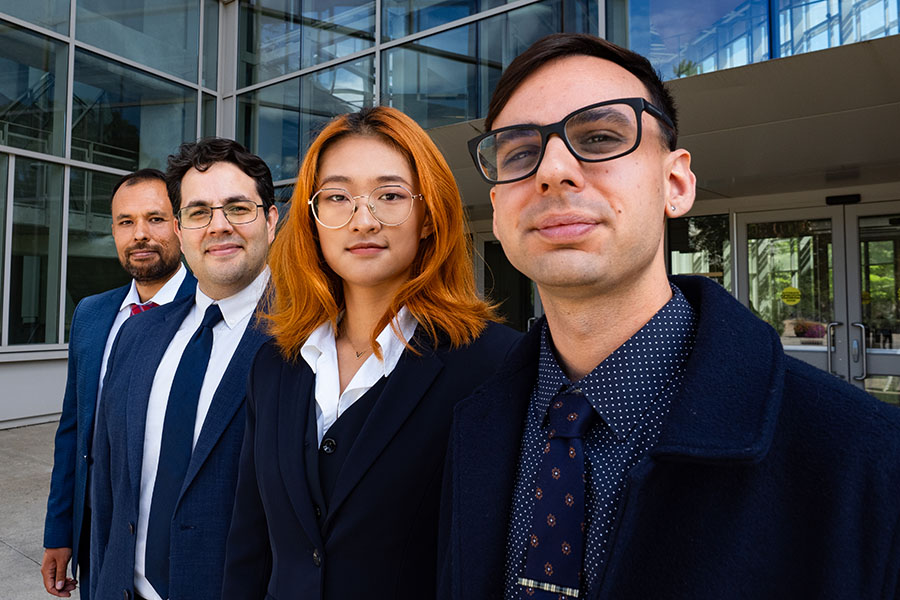
The first group of TRAvel for CollaborativE Research recipients, from left-right: Vahidulla Tac, Eshan Ganju, Yufei Zhao and Alex Alberts. (Not pictured: Sayeed Chowdhury)
Four graduate students and one postdoctroal researcher/alumnus are the first recipients of a pilot program that will allow them to immerse themselves in prominent research laboratories outside of Purdue.
The TRAvel for CollaborativE Research (TRACER) grant, offered through the College of Engineering, has two objectives: to assist doctoral students and postdoctoral fellows who are strongly motivated and well prepared to secure faculty positions at top universities, and also to facilitate collaborations between College faculty and other top research groups and engineering colleges and universities.
The TRACER program allows grantees to learn new research techniques, broaden research networks and either begin or continue work in their fields with world-leading experts at top institutions. Applicable to both domestic and international travel destinations, the program will reimburse up to $10,000 in travel expenses, which could include transportation, lodging, and per diem while traveling to and from the host lab.
Alex Alberts
Alberts is a PhD student from Dover, Ohio, working under Ilias Bilionis, associate professor in the School of Mechanical Engineering.
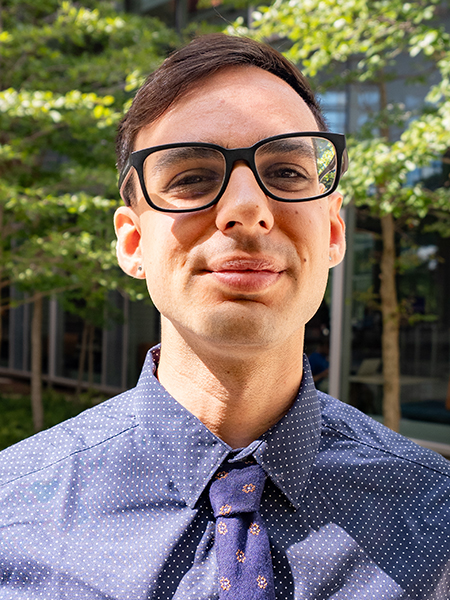
Alberts will travel to the Max Planck Institute for Astrophysics, near Munich, Germany, from February-March 2024. His work is based in uncertainty quantification, scientific machine learning and information field theory (IFT).He will work with Torsten Enblin, considered the leading pioneer of IFT. Together, they will implement the methodology that Alberts and Bilionis developed into the black box software package created by Enblin’s group.
“Eventually, we hope to write a joint paper, including an astrophysics application and an engineering application to showcase the versatility of our method,” Alberts said.
An applied mathematician at heart, he looks forward to gaining experience in a discipline outside of engineering.
“Working with physicists will expose me to new ways of thinking about problems. It will also be interesting to observe how academia differs between Europe and the United States. Finally, I’m looking forward to meeting new colleagues and potential collaborators for the future,” he said.
“Collaboration is one of the keys to success, and it’s always great to gain experience working with new people in a new environment," he said. "Interdisciplinary work presents a unique opportunity for new discoveries that could not be possible otherwise, and I’m very grateful to be given this chance.”
Sayeed Shafayet Chowdhury
Chowdhury, of Dhaka, Bangladesh, is a PhD student under Kaushik Roy, the Edward G. Tiedemann, Jr. Distinguished Professor of Electrical and Computer Engineering, under whom he is studying brain-inspired energy-efficient machine learning models for computer vision. One of the Roy team’s areas of interest is scene understanding through computers.
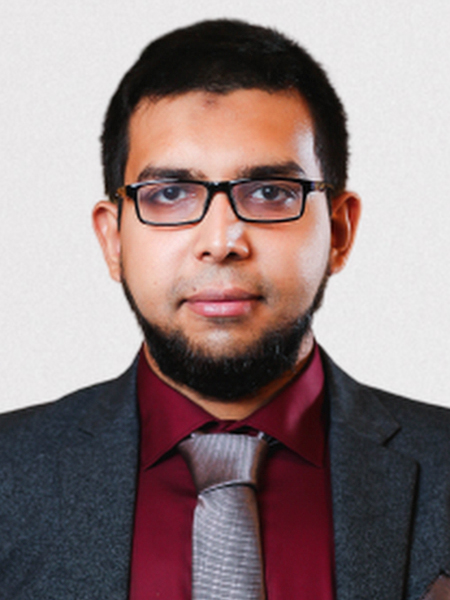
“While current deep learning models do an amazing job at detection or segmentation of objects, inferring the underlying semantics from images or videos is still challenging,” Chowdhury said. “To that end, we aim to utilize bio-inspired Spiking Neural Networks to improve the performance of state-of-the-art deep learning models in visual semantics and syntax.”
In 2024, he will spend February-April 2024 at Georgia Tech with Professor Saibal Mukhopadhyay (PhD ECE ’06), whose lab also is working on energy-efficient vision. There, Chowdhury hopes to gain complementary research skills, learn how to initiate and effectively perform inter-university collaborations, and enhance his outreach.
Chowdhury was “ecstatic” to learn he was selected.
“This is a great initiative from the College of Engineering to support young researchers like me," he said. "It will definitely help us in our careers.”
Eshan Ganju
Ganju (MSCE ’14, PhD CE ’21), of Chandigarh, India, is a postdoctoral researcher under Nikhilesh Chawla, Ransburg Professor of Materials Engineering, and is specializing in X-ray computed tomography (XCT) for material characterization.
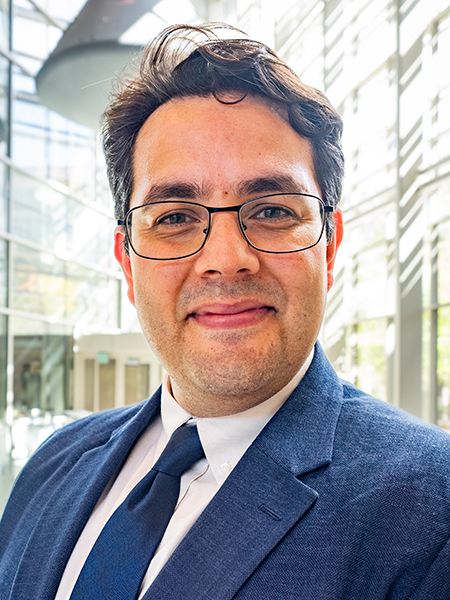
He will spend March-April 2024 at Technische Universitat (TU) Dresden, Germany, collaborating with Markus Kästner in the Department of Solid Mechanics. Machine learning (ML) has impacted a myriad of industries, revolutionizing processes, enhancing efficiency and opening new avenues for growth in the manufacturing, aerospace and automotive industries, Ganju explained. Despite advances in materials engineering enabled by ML, the unification of ML with XCT “represents a mostly uncharted territory filled with promising prospects,” Ganju said.
“This collaboration will develop ML models to accelerate the acquisition and analyses of high-volume multiscale and multimodal XCT and SEM-based microstructural data collected at Purdue in Dr. Chawla’s laboratory.”
While at TU, he expects to strengthen his project management, communication, and research collaboration capabilities as well as gain additional expertise and computational resources essential for rigorously evaluating Purdue’s ML models.
“The College of Engineering has always had good programs to help grad students and postdocs travel for research and conferences," he said. "The TRACER grant definitely takes it further and helps make collaborative research more accessible. I am thrilled about the potential this holds for my work.”
Vahid Tac
Tac is a PhD student studying the mechanics of soft materials using machine learning (ML) in the lab of Adrián Buganza Tepole, associate professor in the School of Mechanical Engineering. Tac will work with Ellen Kuhl, professor and chair in Stanford University’s School of Mechanical Engineering, to develop a physics-informed model of skin growth based on ML.
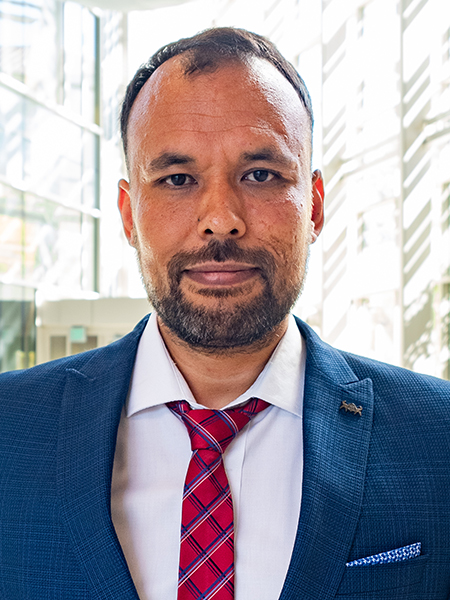
“I have previously used ML tools known as Neural ODEs to develop a very accurate mathematical descriptor of skin mechanics, and I have worked with Dr. Kuhl to publish a joint study on this subject,” said Tac, who will spend April-May 2024 at Stanford to extend that focus.
This opportunity, Tac said, will “immensely elevate my chances” of becoming a future faculty member. “Not only will I get to work on a really exciting research project with one of the most prominent researchers in the world on this topic, but I also will learn a lot about writing proposals, build lasting collaborations and expand my professional network.”
When he applied for the TRACER grant, he knew the competition would be stiff since it was open to both PhD students and postdocs. “Hearing that I was selected was a big affirmation of the dedication and hard work I’ve invested in my PhD,” said Tac, who is from Andkhoi, Afghanistan.
Tac said traveling to different research environments and experiencing different work cultures will have "a big impact on the quality of the PhD students who graduate from Purdue. This is a golden opportunity for young researchers.”
Yufei Zhao
Zhao is a third-year PhD candidate in the Davidson School of Chemical Engineering. She will use the TRACER funds for a collaboration at Carnegie Mellon University from February-September 2024.
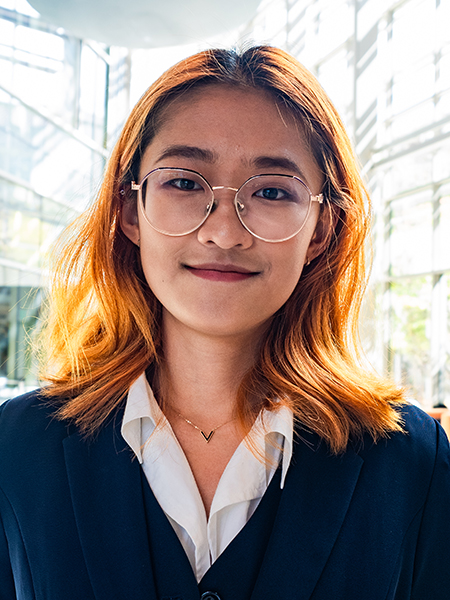
“This collaboration focuses on refining and optimizing our dynamic first-principle heterogeneous model of an electrified steam methane reactor. We anticipate incorporating our model as a module into an advanced energy system,” said Zhao, of Shanghai, China. “Carnegie Mellon is renowned for its pioneering work in computational science and engineering and has extensive expertise in computer-aided optimization and process control.”
Zhao, whose advisor is Cornelius Masuku, associate professor of engineering practice in ChE, said this experience will have the potential to accelerate the progress and broaden the scope of her group’s work at Purdue.
“Our collaborator’s extensive knowledge can enhance our capabilities in advanced simulations, such as real-time optimization, and contribute cutting-edge perspective. Additionally, engaging with world-renowned scholars from Carnegie Mellon will lay a solid foundation for potential future interactions.”
Purdue Engineering’s efforts to prioritize and enable advanced research experiences are much appreciated, she said.
“This has ignited my motivation to conduct more in-depth research for collaborative purposes. It not only unlocks opportunities but also is an honor to be among the initial group of selectees.”
